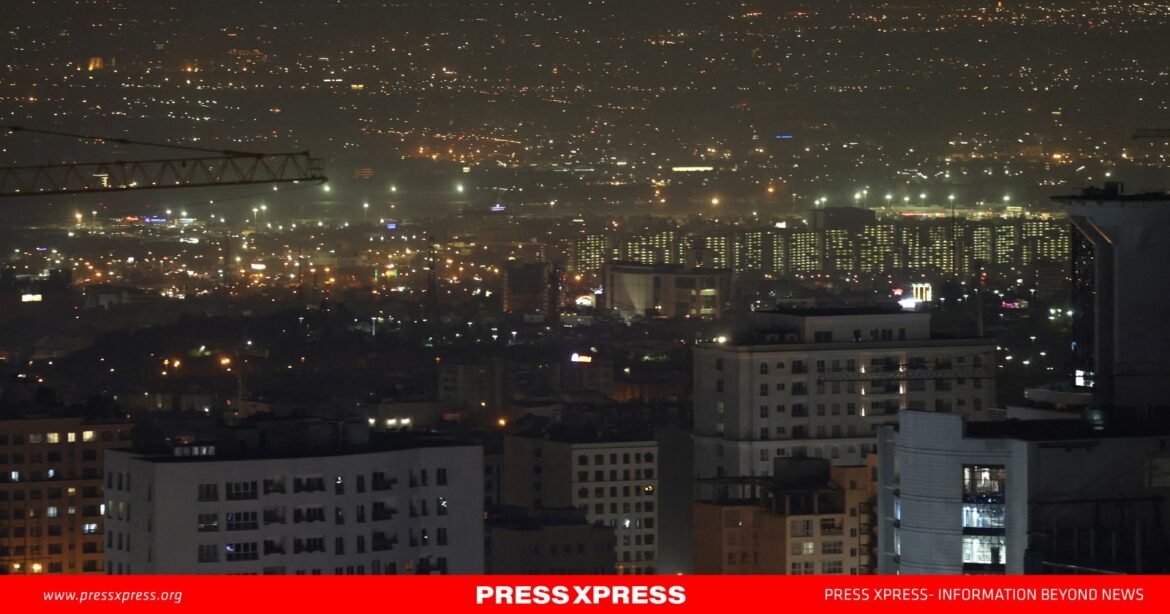Highlights
- Israel launched precise strikes on Iranian military targets
- No reported hits on Iranian oil or nuclear facilities
- The move was expected for weeks following Iran’s latest missile barrage
- Iranian media say situation remains calm across Tehran
Israel said it struck military sites in Iran early on Saturday with over one hundred war planes amid the escalating conflict between the heavily armed rivals.
Iranian media says there have been two waves of attacks on Tehran, with the first one starting around 2:15 a.m. local time and focusing on western parts of the capital Tehran. A second wave took place around 5 a.m., targeting eastern and central parts of the city, IRNA reports, citing a spokesman for Iran’s air defenses.

It said: “The integrated air defense system successfully tracked and countered this aggressive action, though limited damage was caused to some locations, and the dimensions of this incident are currently under investigation.”
For now, local media outlets say the situation is calm, sharing footage appearing to show no visible damage to Tehran’s oil refinery.

The Israeli military announced that it has completed “retaliatory strikes against military targets in Iran.” Israeli aircraft targeted missile-manufacturing facilities, surface-to-surface missile arrays and other military sites, the Israeli military said.
In response to continuous attacks from Iran, the @IDF 🇮🇱 is now targeting military sites in Iran.
— Israel ישראל (@Israel) October 25, 2024
Since October 7, Iran and its proxies have attacked Israel on multiple fronts.
Israel will do whatever is necessary to defend its state and people. pic.twitter.com/JmTgPxRCOV
Now the focus will turn to Iran. Iran says is “ready to respond” to Israel’s attacks on the country, reports the semi-official Tasnim news agency, citing “informed sources”.
The agency, affiliated with the IRGC, reports the sources as saying there is “no doubt” Israel will “receive a proportionate response to any action”
Israel also targeted some military sites in Syria’s central and southern parts with airstrikes early on Saturday, Syrian state news agency SANA reported.
Syrian air defense forces intercepted missiles launched by Israel “from the direction of the Israeli-occupied Syrian Golan Heights and the Lebanese territories” and shot down some of them, SANA added.
How have Israel and Iran arrived at this point?
The Middle East has been on edge awaiting Israel’s retaliation for a ballistic-missile barrage carried out by Iran on Oct. 1, in which around 200 missiles were fired at Israel, Iran’s second direct attack on Israel in six months.
Those strikes, which Iran said targeted Israeli military facilities, came after Israel killed the top leadership of Iranian ally Hezbollah in Lebanon.
Hezbollah joined the fight against Israel in support of Hamas, the Palestinian resistance group based in Gaza, also aligned with Tehran, after Hamas attacked Israel on Oct. 7, 2023.

“In response to months of continuous attacks from the regime in Iran–Israel is conducting precise strikes on military targets in Iran,” Israel’s military said in a statement.
Targets did not include energy infrastructure or nuclear facilities, a U.S. official said.
U.S. President Joe Biden had warned that Washington, Israel’s main backer and supplier of arms, would not support a strike on Tehran’s nuclear sites and has said Israel should consider alternatives to attacking Iran’s oil fields.
Global Reactions
Israel said Prime Minister Benjamin Netanyahu and Defense Minister Yoav Gallant were closely following the operation at the military’s command and control center in Tel Aviv.
USA Secretary of Defense Lloyd J. Austin III spoke with Yoav Gallant, the defense minister of Israel, to receive updates on the strikes in Iran, the Pentagon said. Mr. Austin reaffirmed “the ironclad commitment of the United States to Israel’s security and right to self-defense,” according to the Pentagon’s summary of the call.
The United States was notified by Israel ahead of its strikes on targets in Iran but was not involved in the operation, a U.S. official told Reuters.
A senior White House official said that this should be the end of this direct exchange of fire between Israel and Iran.
Reacting to news that Israel has launched air strikes on Iran, a UK government spokesman says London is “monitoring this situation closely”.
“We support Israel’s right to self-defence and to protect itself in line with international humanitarian law. Further escalation is in no-one’s interest,” the statement adds.
How Israel-Iran Conflict Shapes the Middle East
The Israel-Iran conflict profoundly shapes the Middle East by fueling proxy wars, influencing regional alliances, and setting the stage for geopolitical shifts. Iran, supporting groups like Hamas, Hezbollah, and the Houthis, projects influence through a network of militant allies across Lebanon, Syria, Iraq, and Yemen. This approach keeps Israel engaged on multiple fronts, extending the conflict beyond their borders and creating persistent instability across the region.
Each escalation, from targeted assassinations to missile exchanges, has broader consequences for the balance of power in the Middle East. For instance, Israel’s strikes on Iranian assets in Syria and Lebanon signal not only a defensive posture but also a warning to other regional powers aligned with Iran. This tactic forces neighboring states to weigh their alliances, thereby reshaping regional diplomacy and security dynamics.
As both nations pursue strategic influence—Israel with its military edge and Iran with its proxy alliances—their rivalry disrupts regional stability and pushes other countries into the fray, making the Israel-Iran conflict a cornerstone of Middle Eastern power struggles.


